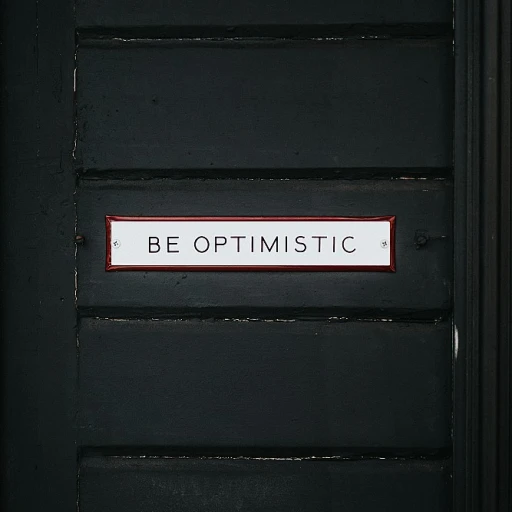What Does a CHRO Do?
A Multifaceted Role within the Organization
The Chief Human Resources Officer (CHRO) plays a crucial role in orchestrating the human resources strategies that align with the overall objectives of a company. As the senior-most HR executive, the CHRO is responsible for not just overseeing the HR department but also for serving as a vital link between the company's corporate vision and the employee workforce. This position requires an extensive understanding of HR functions and the foresight to anticipate future organizational needs. One of the primary responsibilities of a CHRO is to manage talent acquisition, ensuring that the company attracts and retains the best talent in the industry. Beyond recruiting, the CHRO is also tasked with developing performance management systems that promote accountability and foster talent development. In addition, the CHRO has a profound influence on shaping policies that focus on diversity, equity, and inclusion within the company. This role demands a proactive approach to identifying and addressing potential barriers to a diverse work environment. As discussed in the upcoming strategies of a CHRO, these efforts are essential to nurture an inclusive company culture that encourages diverse perspectives. Another key aspect of a CHRO’s role is aligning HR strategies with business strategies. By developing a deep understanding of the organization's goals, the CHRO can craft HR policies that propel the company towards these ambitions, a process described in detail in the section on the strategic role of a CHRO. Moreover, CHROs often play a central part in crisis management, using their expertise to constructively manage significant transitions or disruptions within the company, as will be illustrated in some of the successful CHRO case studies. Finally, it’s essential to recognize that a CHRO’s responsibilities are ever-evolving. As workplace norms and business landscapes shift, so does the role of the CHRO—transitioning from traditional HR management to playing a central part in strategic decision-making and leading transformation initiatives within the company. For a deeper insight into how CHROs drive overall success, consider exploring the hidden power of the CHRO in business strategy.The Strategic Role of a CHRO in Business
Significance in Strategic Business Decisions
In today's fast-paced business environment, the Chief Human Resources Officer (CHRO) plays an integral role in steering the company’s strategic direction. Gone are the days when human resources solely focused on hiring and administrative tasks. Instead, the modern CHRO is at the forefront of aligning human capital with business goals, creating a meaningful impact on the overall strategy. The CHRO's involvement in strategic business decisions is multifaceted. This includes talent management, organizational development, and workforce planning. By fostering a solid understanding of the company's mission and objectives, the CHRO tailors HR initiatives to support both immediate and long-term organizational needs. They act as change catalysts, guiding the company through transitions with a focus on resilience and employee engagement.Enhancing Competitive Advantage Through Talent Management
One of the key responsibilities of a CHRO is managing the company's most valuable asset—its people. Through robust talent management practices, CHROs ensure that the organization not only attracts top talent but also retains and develops it. This commitment to nurturing talent boosts the company’s competitive advantage. The strategic lens of a CHRO places a strong emphasis on understanding workforce dynamics, fostering employee potential, and embedding a culture of continuous learning. This approach ensures that the workforce is well-equipped to handle industry challenges and drive innovation. Effective talent management, therefore, becomes a crucial aspect of how the CHRO supports strategic decision-making.Aligning Human Capital with Business Objectives
A critical responsibility of the CHRO is to ensure that human capital strategies are aligned with business objectives. This alignment necessitates a deep understanding of both the workforce and the intricacies of the business itself. The CHRO must anticipate and respond to the evolving needs of the company, aligning employee performance with the overall business strategy. By fostering an environment where employees are motivated and aligned with the company’s mission, CHROs contribute significantly to achieving business objectives. Through strategic workforce planning and development programs, they enable the organization to meet current and future challenges head-on. The strategic role of the CHRO is crucial in anchoring human resources to the broader ambitions of the company. To delve deeper into the responsibilities and impact of a CHRO, you can explore more about understanding the role of a chief human resources officer.Leadership and Employee Experience
The Vital Link between Leadership and Employee Experience
The Chief Human Resources Officer (CHRO) is not just a gatekeeper for HR policies or a facilitator of recruitment processes. Instead, they are emerging as pivotal leaders who drive meaningful employee experiences. This role is integral to fostering a productive work environment that aligns with both employee satisfaction and organizational objectives. A CHRO's influence on leadership manifests in their capacity to collaborate with the C-suite to create a leadership framework that prioritizes employee engagement. By working closely with executives, CHROs ensure that the leadership culture promotes inclusivity, agility, and transparency. This collaboration is crucial for cultivating a corporate environment where employees are inspired and empowered to reach their full potential. Moreover, the alignment of leadership strategies with employee experiences can significantly enhance organizational performance. By proactively engaging in strategic conversations, CHROs can influence leadership decisions, paving the way for a positive organizational culture that reflects the company's core values. The interdependence between leadership and employee experience often translates to heightened innovation and a competitive edge in the marketplace. Indeed, the strategic involvement of a CHRO extends beyond traditional HR functions. Their role in sculpting employee experiences positions them as pivotal players in shaping the future of work. The ability of CHROs to adapt and strategize in response to changing workplace dynamics often sets a company apart from its competitors. For more insights into leadership strategy, explore the role of a chief marketing officer and how this complements the CHRO's contributions in the organizational ecosystem.CHROs and Company Culture
The Influence of CHROs on Company Culture
The significance of company culture cannot be overstated—it's the invisible force that can propel an organization to extraordinary success or, conversely, lead it astray. At the helm of shaping a thriving workplace culture is the Chief Human Resources Officer (CHRO). This role is not just about managing HR tasks; it's pivotal in crafting an environment where employees feel valued, inspired, and empowered. A CHRO's strategic involvement in company culture begins with understanding and embodying the organization's core values. They work closely with leadership to ensure that these values are not just words on a wall but are actively reflected in everyday business operations. A CHRO facilitates alignment between the company's mission and the workforce, fostering a sense of shared purpose and community. Moreover, the CHRO plays a crucial role in cultivating a culture that encourages open communication and transparency. They implement frameworks that support feedback, dialogue, and collaboration across all levels, nurturing an atmosphere where employees feel heard and respected. This, in turn, can lead to greater employee satisfaction and reduced turnover. In their journey to enhance company culture, CHROs also innovate with diversity and inclusion initiatives. This aspect of their role is about more than just meeting quotas—it's about building a workplace where diverse perspectives are celebrated, leading to more innovative problem-solving and a more resilient organization. The evolving role of CHROs means they're continuously adapting to cultural shifts and societal trends. As workplaces become increasingly dynamic, CHROs must spearhead cultural change strategies that anticipate and respond to these changes effectively. Successful CHROs recognize that a positive company culture is built on trust and meaningful relationships. They champion employee well-being and engagement, understanding that these elements are intrinsic to a productive and motivated workforce. For a deeper dive into the strategic role of these HR leaders, explore our comprehensive analysis on CHRO responsibilities and contributions to business success.The Evolving Role of CHROs
Adapting to Technological Advancements
In the ever-evolving landscape of business, the role of the Chief Human Resources Officer (CHRO) is continuously being reshaped by technological advancements. As digital transformation sweeps across industries, CHROs are tasked with integrating new technologies into HR practices to enhance efficiency and employee engagement. From utilizing AI for talent acquisition to leveraging data analytics for workforce planning, the modern CHRO must be tech-savvy and forward-thinking.
Embracing Diversity and Inclusion
Another key aspect of the evolving role of CHROs is their commitment to fostering diversity and inclusion within the workplace. As discussed in earlier sections, company culture is heavily influenced by the CHRO's initiatives. Today's CHROs are champions of diversity, ensuring that the workplace is welcoming and equitable for all employees. This involves not only setting policies but also actively promoting an inclusive culture through training, communication, and leadership development.
Navigating the Hybrid Work Environment
The shift towards hybrid work models has presented both challenges and opportunities for CHROs. Balancing remote and in-office work requires a strategic approach to maintain productivity and employee satisfaction. CHROs are at the forefront of designing flexible work policies that accommodate the diverse needs of the workforce while aligning with the company's goals. This includes rethinking performance metrics, enhancing digital communication tools, and supporting mental health and well-being.
Strategic Workforce Planning
As businesses face rapid changes in market demands and economic conditions, CHROs play a crucial role in strategic workforce planning. They must anticipate future skills needs and develop strategies to upskill or reskill employees accordingly. This proactive approach not only ensures that the organization remains competitive but also enhances employee experience and retention.
The role of the CHRO is indeed multifaceted and dynamic, requiring a blend of strategic vision, empathy, and adaptability. As the business environment continues to change, CHROs will remain pivotal in steering organizations towards sustainable success.





-large-teaser.webp)








